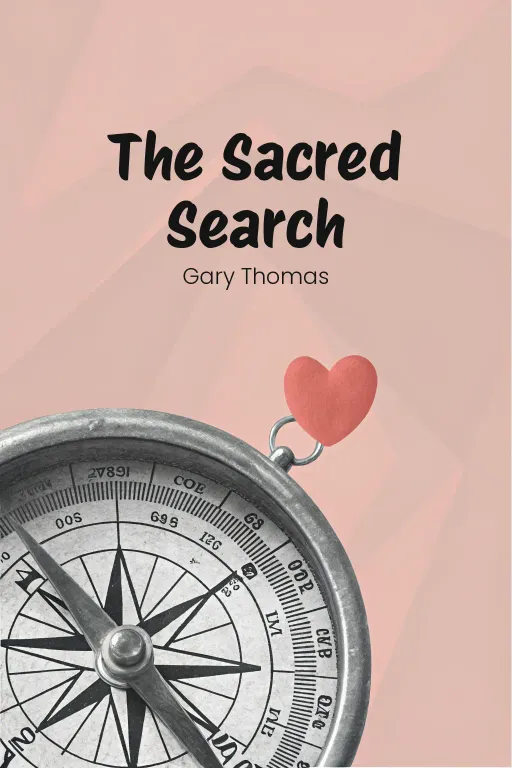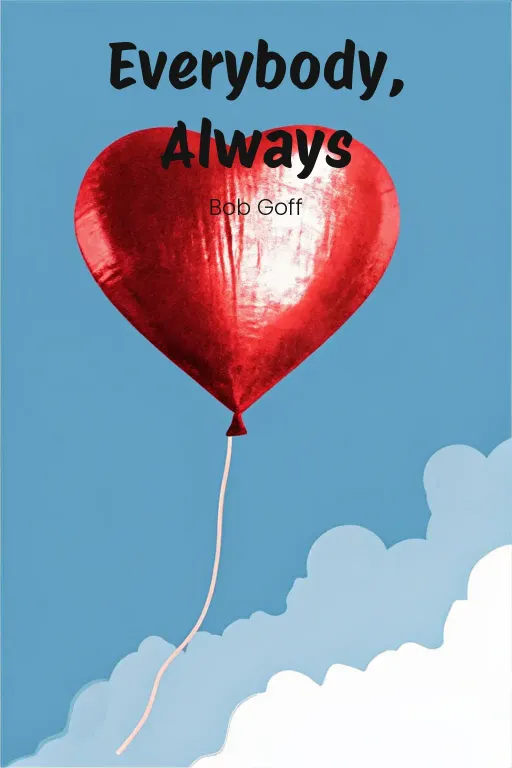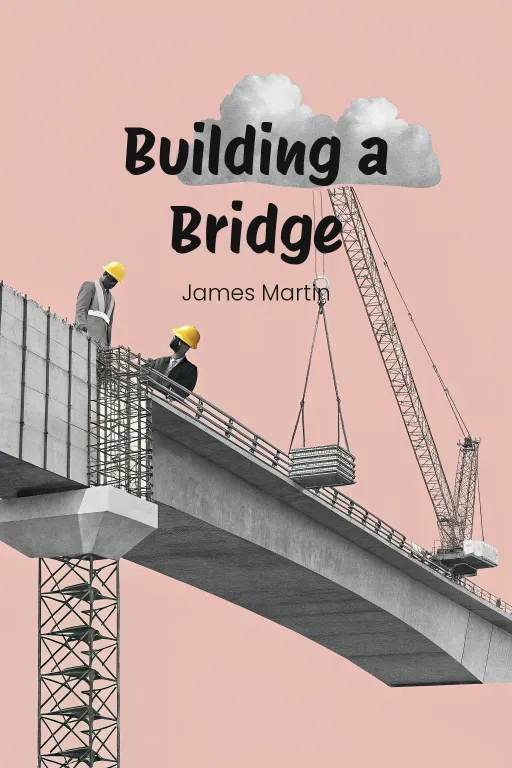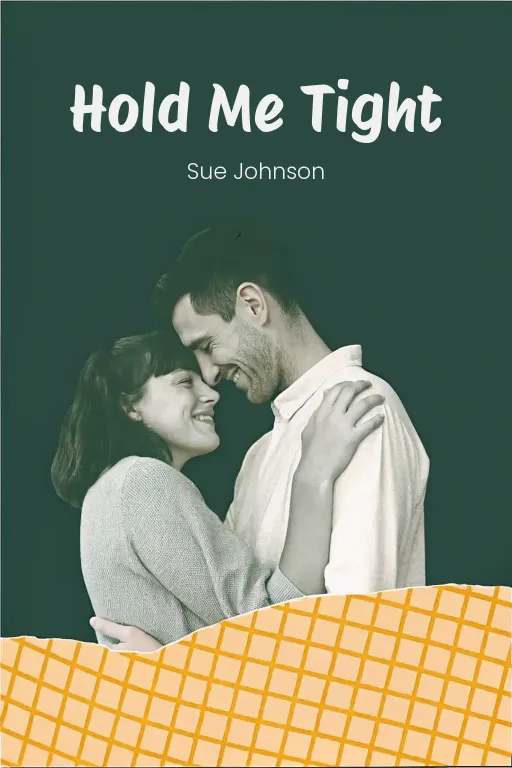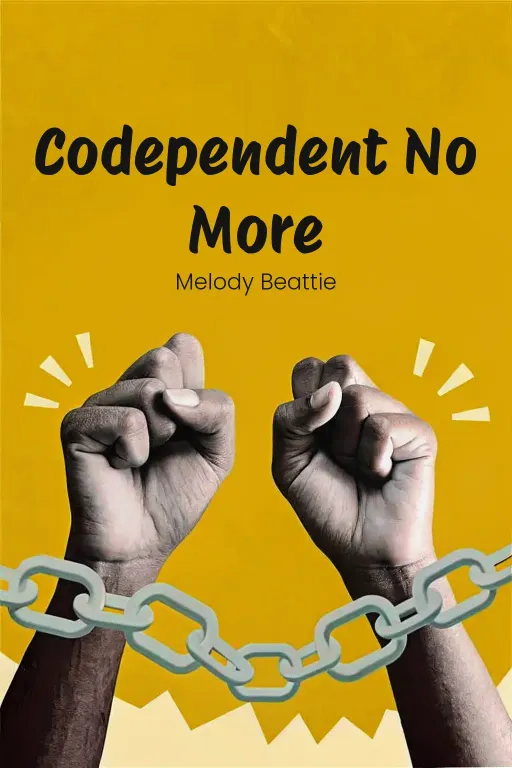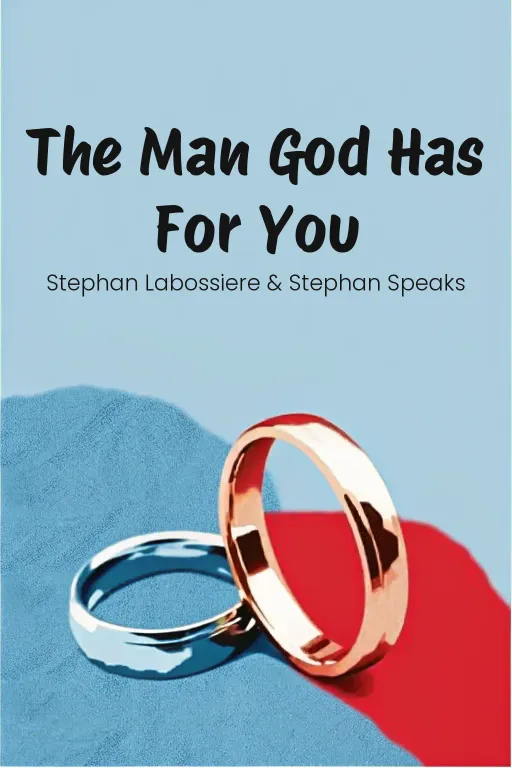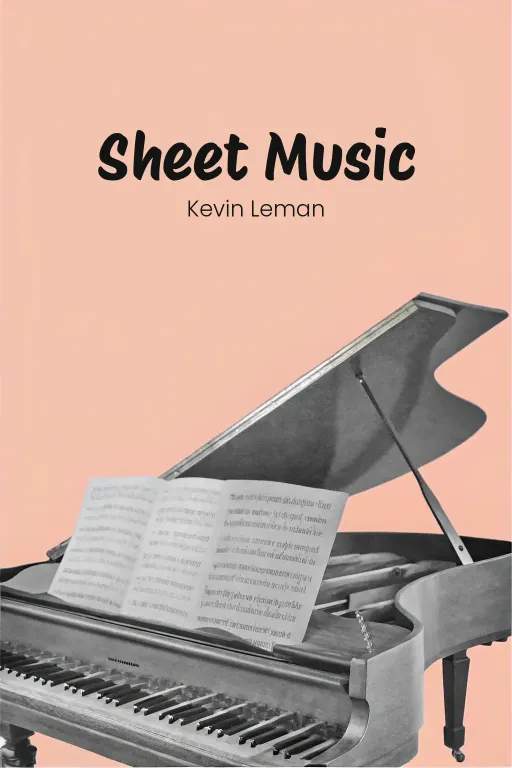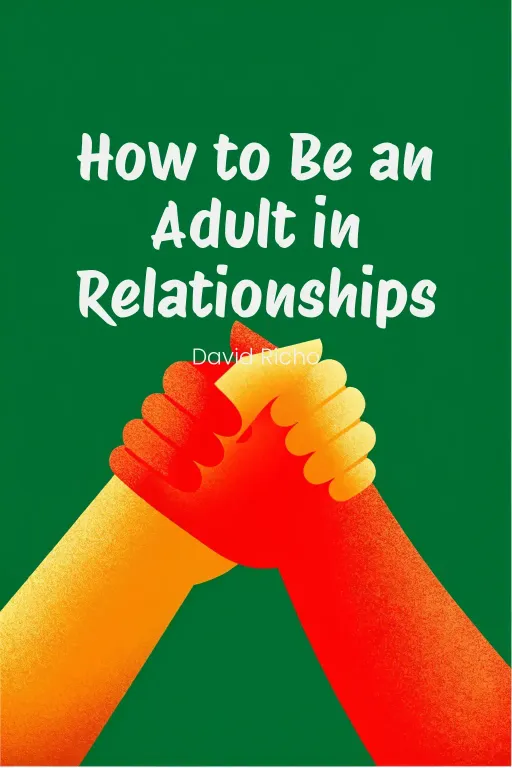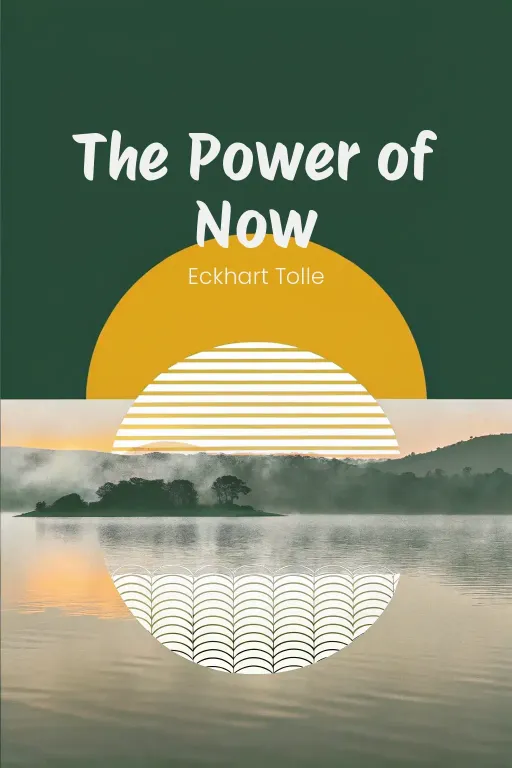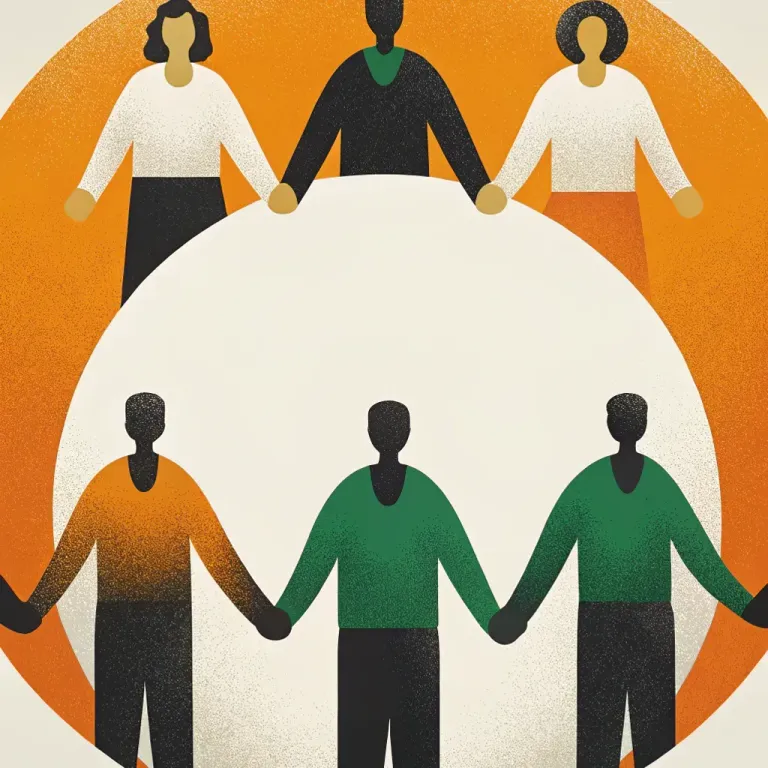
Love's Ripple: Transform Your World
Podcast by The Mindful Minute with Autumn and Rachel
Becoming Love in a World Full of Setbacks and Difficult People
Love's Ripple: Transform Your World
Part 1
Autumn: Hey everyone, welcome to the podcast! Today we're talking about something fundamental to all of us: love. But we're not just talking about romance; we’re going to explore love as an active force that can “really” change your life. What would your life look like if you actively chose to love not only your friends and family, but, you know, even those difficult or hostile people? Rachel: Okay, before anyone tunes out thinking this is going to be all rainbows and unicorns, hold on a second. We're not talking about some cheesy, made-for-TV version of love. We're talking about real, gritty stuff: grace under pressure, forgiving the seemingly unforgivable, and that kind of love that actually requires sacrifice. It can be messy, uncomfortable, and honestly, hard to even wrap your head around. But the potential impact? That’s what we're “really” diving into today. Autumn: Exactly, Rachel. And to guide us, we're using Bob Goff's book, Love Everybody, Always. It's full of personal stories that manage to feel both very relatable and, well, pretty extraordinary. Goff shows us how love isn’t just a feeling; it’s “really” a choice, a deliberate practice. He challenges us to kind of break down the walls we build, to embrace humility, and find the courage to show love even when it’s inconvenient or, you know, even risky. Rachel: Yeah, it's not just about letting someone cut in line at the grocery store either. Goff has stories about flying across the globe to forgive people, transforming societal norms in Uganda, and stuff like that. It’s the kind of book that makes you stop and think, "Am I really doing everything I can to love the people around me—and maybe even those outside my immediate circle?" Autumn: Right. So, in this episode, we’re going to unpack the book through five key ideas. First, we're going to look at love as this thread that connects all of us. Second, we'll tackle the tough one: loving the unlovable, which we all know is way easier said than done. Rachel: Tell me about it. And after that, Autumn, we’re going to explore how loving others actually helps us grow as individuals – because, let's be real, it's not always easy. Then, we'll look at the broader impact love can have on entire communities. Autumn: And finally, we will discuss what might be the ultimate test of love, which is true forgiveness, the kind that keeps no score. Rachel: So, grab your coffee -- or whatever gets you through these conversations -- because we're going way beyond the clichés. Let’s see if this radical, all-in version of love that Bob Goff writes about can actually change our lives… and maybe even the world.
The Transformative Power of Love
Part 2
Autumn: Okay, so, let's dive into the core of it—love as this transformative force. Bob Goff doesn’t see love as just some, you know, warm and fuzzy feeling or something you passively experience. He really puts it front and center as the essence of faith, our purpose, what makes us essentially human. Like, one of his stories is about revitalizing a community park. And it's not just about simple things such as planting flowers. It's “really” about love motivating people to get involved, look past their differences, and actually work together for something bigger. Rachel: Exactly. What “really” struck me in that story is that revitalizing that park didn’t just magically erase everyone’s differences. I mean, it’s not like everyone suddenly became best friends. But, working together towards that shared goal, they built trust. And that’s what transformed the park into something more than just a space—it symbolized what love can achieve when people put their minds to it. You know, a lot of times, people will casually mention community, but Bob Goff is saying it's something that you actively create. And, you know, love is the glue that holds it all together. Autumn: Exactly. And the idea of love as active and super intentional, is such an important point. Goff continually emphasizes that love isn’t just this emotion you feel, it’s something you do. Take, for example, how his family cared for Carol, this widow who became like family. I Mean, they didn’t just offer sympathy, they chose to be present and available for her daily, in meaningful ways. I found the example of the walkie-talkies they used to brighten her days while she was battling cancer, so touching. Rachel: Oh, man, those walkie-talkies “really” got to me. It’s this, like, super simple, almost quirky idea, but it carried so much meaning. It’s so easy to think that love should be these huge, sweeping gestures, but Goff makes the point that often it’s the smaller, more intentional acts that matter most. It’s about “really” seeing people, sharing in their highs and lows, and simply saying, "I’m here. I see you." Autumn: Yeah, and it’s also about being persistent. By staying with Carol through those difficult times – not checking out when things got tough – Goff and his family showed how love plays out over the long haul. It’s not just about showing up once, it’s about being consistent, even when it’s inconvenient. That’s where the real transformation happens, both for Carol and for them. Rachel: I totally agree, but here’s where my inner journalist starts to kick in: Where do you draw the line between, you know, being persistent in love and maybe, stretching yourself too thin? Because sometimes it’s just not feasible to keep giving and giving, especially if the relationship is starting to drain you emotionally. So, how do you balance being there for others while also knowing your own limits? Autumn: Hmm, that’s an interesting question, Rachel, and I think Goff would probably say love is more of a discernment process than a one-size-fits-all equation. I mean, he’s not saying we should forget about self-care or allow ourselves to be overburdened. Instead, he frames love as a series of intentional choices. In Carol’s case, the walkie-talkies or those shared moments weren’t draining, they were life-giving. But, if someone continually takes without, you know, any reciprocity, then love might look different. It might mean setting boundaries, which is its own act of love, for both parties. Rachel: Right, so what we’re “really” saying is that love doesn’t mean becoming a doormat. It’s active, intentional, but also realistic. Speaking of boundaries, let’s take that idea to a broader scale, like with Goff’s work in Uganda. He talks about how his charity, Love Does, helps rebuild lives in communities that have been torn apart by war – not just by throwing money at the problem, but by creating environments that foster transformation, you know, like schools for kids who once lived in fear. Autumn: Right, and that example highlights love’s role in healing. Goff’s work in Uganda didn't just alleviate individual pain, it addressed the wider trauma of communities devastated by conflict. By creating safe spaces for education, his organization “really” laid the foundations for long-term change. What “really” hits me is how love creates this ripple effect. He starts by helping one child, but the overall impact spreads. Those kids grow up, they influence others, and eventually they rebuild their communities. Rachel: I'm glad you emphasized "ripple effect," Autumn, because that “really” speaks to what I find fascinating about love’s transformative power: it builds momentum. It’s not static. When you look at those schools, heck, even that New Year’s parade Goff started in his neighborhood, it becomes clear that love, when practiced consistently, starts to snowball. And before you know it, a small act inspires bigger ones, and it’s not just individuals changing - it's entire systems or communities. Autumn: Exactly, and that’s what Goff means by love being courageous. Whether it’s, you know, loving your neighbor with a friendly parade or stepping into a war zone to love kids who’ve been through unimaginable trauma, love requires a willingness to, “really”, take risks. It might be uncomfortable, but that’s where growth happens, for everyone involved. Rachel: But this kind of, you know, courage also raises the question – what happens when love isn’t reciprocated? When you extend kindness, put in the effort, offer forgiveness, and it just falls flat? Goff shares some pretty, uh, radical ideas on forgiveness, and I’m curious to hear what you think about them.
Loving the Unlovable
Part 3
Autumn: That's a great segue into what Bob Goff calls "loving the unlovable". It's the ultimate test of love, isn't it? He really digs into how fear often stops us from loving those we find difficult or intimidating. His story about the rental van in San Francisco is such a vivid example. This guy is faced with judgment—a rental attendant sizing him and his group up because they look a little rough after a long day of work. Instead of getting defensive or frustrated, Goff uses that moment to think about a deeper truth about human nature. Rachel: You know, that story had me both laughing and cringing. It's so relatable! Who hasn't been judged based on first impressions, or even worse, been the one doing the judging? And Goff doesn't pull any punches–he calls out that tendency directly. His insight, that we often label people based on a quick look and then let those labels dictate how we treat them, is spot-on. Autumn: Exactly! And what I really admire is how he shifts the focus from judging others to looking inward. Goff challenges us to not only see our judgments, but to actively dismantle them. It's not about beating yourself up for being human, it's about saying, "Okay, this is where I'm at. How can I let love take the lead instead of fear?" That's why he uses the term "creepy people" so provocatively. It's almost tongue-in-cheek, but it forces us to really confront our biases head on. Rachel: Right, let's unpack that a bit. "Creepy people" can be anyone who doesn't fit into our comfort zone—the socially awkward person, the outspoken neighbor, even someone who's wronged us. But, is there a limit to loving those people? I mean, the idea of loving your enemies—or at least being decent to them—is nice and all, but where do you draw the line in practice? Let's take it to extremes, are we “really” supposed to love someone who is actively harming us, committing crimes, anything like that? Autumn: That is a tough question. And Goff doesn’t let us off the hook either. He really emphasizes Jesus’ teachings, specifically the call to love your enemies. But he’s not saying we should blindly accept harmful behavior. Instead, it’s about choosing to respond with courage and compassion instead of with anger or revenge. Like, Goff shared that his van was robbed in San Francisco. Thieves stole his laptop and his early book drafts. Major setback. Anyone would feel angry or resentful. Rachel: Ugh, just thinking about that is making me stressed. Losing book drafts? You're kidding me! Autumn: I know, right? But here's where Goff flips the script. He doesn't let the theft define his response. Instead of getting bitter, he chooses to see it as an opportunity for resilience and forgiveness. He reframes the robbery as a reminder of what really matters in life. For Goff, it wasn’t about excusing the crime. It was about choosing not to let fear and frustration take over his life. Rachel: Okay, I get the forgiveness angle. And I can respect choosing to let go of anger. But honestly, is that…realistic? What if the person who hurt you doesn't care, or there's no coming back from this? Autumn: That's where Goff's message “really” hits home, Rachel. Because he says forgiveness is more about our internal freedom than the other person's response. Loving someone like this doesn't mean you’re condoning what they did. It just means you're not letting their actions control your emotions. It’s about breaking your own cycle of anger and fear, even when the other person never apologizes. Rachel: So, if I'm hearing you right, loving the unlovable isn't just a nice thing to do, it's actually freeing yourself. Autumn: Precisely. Goff goes on to say that fear is the reason for many relationship problems. No matter who we're talking about, or the situation we're talking about, fear tells us to protect ourselves. But loving courageously breaks down those defenses. It replaces self-preservation with connection. Goff does this in Uganda, too. His organization, Love Does, doesn't focus on punishing or shaming people who've caused harm. Instead, they create places, like schools, where people have a chance to rebuild their lives from conflict. Rachel: That's super powerful, but let's not romanticize things too much. Creating a safe space for former child soldiers and wartime survivors is amazing. But, it doesn't just erase the trauma, the systemic problems, or the scars in society. Love can plant the seeds for change, but don't we need justice to take root? Autumn: Exactly, and Goff doesn’t shy away from the need for systemic change. In fact, he argues love and justice are inseparable. You can see this play out in how he works with marginalized communities. He doesn't just throw money at a problem. He focuses on sustainable models of support, like education, that empower people to change their circumstances. Love is the spark, but it's paired with real action. Rachel: I agree, but it does bring me back to something we talked about earlier, what happens when love pushes us into uncomfortable or risky territory? Because, Goff says, love isn’t safe or convenient. It’s an active choice that can make you vulnerable. How would someone balance safety and vulnerability? Is there a middle ground here? Autumn: I think that's one of the key tensions Goff explores. Vulnerability is built into love, you can't avoid that. But that’s also where you grow, both individually and together. For Goff, stepping into discomfort isn’t about ignoring everything and being reckless, it’s about trusting that love, even when it feels risky, is worth the cost. He is pointing to Jesus as the ultimate example–someone who was with the worst people in the world at his time, despite the cost. Rachel: So, in a way, Goff is asking us to love with open hands—without expecting anything back, without any guarantees that we'll be safe. It’s love for its own sake. That's easy to say, but much harder to actually do. Autumn: Agreed. But it’s transformative. And that’s “really” what "Loving the Unlovable" is all about. It's not about being perfect, it's about being willing to show up, to forgive, and to build bridges instead of walls. The point is, love as something you do, not just something you think about.
Personal Growth Through Love
Part 4
Autumn: So, we've talked about the importance of loving everyone, but what I find really compelling in “Love Everybody, Always” is how Bob Goff connects that to personal growth. It's not just about being nice; it's about how loving others actually changes you. Rachel: Exactly. It's not just altruism for altruism's sake, is it? Goff makes the case that embracing love, even when it's difficult or painful, reshapes you. You come out different, maybe even better. And he uses some pretty incredible stories to illustrate that. Autumn: He really does. The story of his neighbor, Carol, who was battling cancer, is such a powerful example. It shows how his family chose to really engage with her suffering rather than keeping a safe distance. Rachel: Right, they really jumped in. That walkie-talkie story is almost cinematic, isn’t it? I mean, what a playful and meaningful way to connect with Carol during her treatments. It makes you wonder, though: why did that small gesture matter so much? Couldn’t they have just called or visited? Autumn: Well, the walkie-talkies highlight intentionality, I think. A phone call can feel a little formal, but walkie-talkies make communication light and immediate. It was about letting her know they were present and thinking about her, even on tough days. It transformed a dark experience into one of connection. That’s the lesson that stuck with Goff, I think. Love isn’t always grand gestures; sometimes it’s just being there when it matters. Rachel: That intentionality is key, isn't it? Love isn't passive; it requires effort. But does this work only when the other person is receptive? What about those relationships where your best intentions just seem to bounce off? Autumn: That’s a really good point. Someone like Carol, that's reciprocal love – you give and get back, even if it's just gratitude. But Goff also emphasizes that, sometimes, love isn’t about expecting a response. It’s about choosing to love regardless. Adrian, the TSA agent Goff befriended, is a perfect example. Their connection grew just because Goff noticed and valued him in those fleeting moments. Rachel: You know, the Adrian story is both beautiful and, honestly, tragic. This guy is just doing his job, you know, serving the community, and he makes this connection with Goff. Then, suddenly, he's gone. It really makes you think about all those moments we take for granted. Autumn: Absolutely. Adrian’s passing served as such a sobering reminder that no act of kindness is ever wasted. It speaks to the idea that love has ripple effects beyond what we immediately see. Every smile Adrian gave, every brief conversation, may have brightened someone’s day in ways he'd never know. That’s why Goff talks about humility in love—realizing we might not always see the impact but choosing to act in love anyway. Rachel: Okay, I get that. Love in the small moments. But is this something everyone can do? I mean, Adrian sounds like he had a natural warmth about him, but what about people who don't? Are they just doomed to fail at this whole love thing? Autumn: I don’t think so at all. What’s beautiful about Goff’s perspective. he doesn’t frame love as a personality trait, you know? Something only extroverts can manage. He frames it as a choice and an ongoing practice. You don’t need to be naturally bubbly; you just need to be present and intentional, like Goff was with Carol or Adrian. It's less about who you are and more about what you choose to do with the opportunities around you. Rachel: So you're saying it's not about perfection, but participation. You don't have to get it right every time, you just need to show up. Autumn: Exactly! And that's where the growth comes in. By showing up consistently, you reshape not just your relationships but your perspective. Loving others – even in small ways – cultivates resilience and gratitude within yourself. And when you step outside of your comfort zone to love boldly, the transformation can be even greater. Rachel: That point about stepping out of your comfort zone is good, because loving people is messy. It's unpredictable, and it asks a lot of you. Goff's relationship with Carol did that – she had cancer. They could've easily stayed at arm's length from the pain, but they leaned in. And in doing so, they grew. Autumn: And it wasn’t just their growth – there was healing for Carol, too. That’s what makes love so powerful; it’s mutually transformative. Whether it's through walkie-talkies, meaningful conversations, or even a simple smile, love connects us to something bigger than ourselves. It’s an experience that changes everyone involved, often in ways we can’t fully anticipate. Rachel: Which brings us full circle to Goff’s key message: love isn’t a passive state; it’s an active effort that transforms us and those around us. When done right, it’s not just kind, it’s revolutionary. So, how does this personal growth transfer to something broader, reaching communities and societies?
Community and Societal Impact
Part 5
Autumn: Exactly, Rachel. Building on that, personal growth through love doesn't just stop with us; it naturally extends to impact our communities and even broader society. In “Love Everybody, Always”, Bob Goff illustrates how love's transformative power really does ripple outward. So, yeah, we're talking about how love can affect larger groups and societies, usually through shared connections and collective action. Rachel: Alright, Autumn, but let's get down to brass tacks. This "rippling outward" concept is great in theory, but how does that actually play out? What's the mechanism that turns a simple act of kindness into something that reshapes communities? Autumn: Absolutely, a fantastic question. Goff gives us some great examples, starting with something as seemingly simple as his neighborhood New Year’s parade. Now, it might sound like just a fun anecdote, but this parade perfectly shows how small, consistent acts of love can create real connections within a community. Rachel: I have to admit, that story made me chuckle a bit. I mean, a New Year’s parade that started off with a few neighbors and grew so much it caused a helium shortage? Hilarious. But seriously, it's a great illustration of how one idea, one act of reaching out, can snowball into something bigger than you ever imagined. Autumn: Exactly! The initial idea for Goff and his family was simply to bring their neighbors together—to foster connection and a feeling of belonging. They had balloons, decorated bikes, and created an environment where everyone, no matter their differences, could participate without judgment. What started as a simple tradition really did become a catalyst for unity. People who might not have otherwise interacted found themselves laughing, enjoying each other’s company, and breaking down barriers. Rachel: So, what you're saying is, the parade wasn't just about having a good time; it was about creating an inclusive space where love and connection could actually flourish? It's almost funny to think that something as simple as balloons and wagons can achieve that, but it clicks when you acknowledge the power of shared experiences. But is that seemingly simple enough to overcome deeper divisions, you know, in a community? Autumn: Well, the parade alone might now totally solve a community's problems, but it establishes a foundation, right? It reminds people that they share something, however small. and from that shared experience, relationships develop. And that's Goff's point: Love builds relationships, relationships build trust, and trust will eventually create bridges capable of addressing bigger divides. It is a process. Rachel: Okay, so, the takeaway is to "start small." But let's zoom out from that local neighborhood vibe and look at another story where Goff's work had a bigger societal impact—his work with “Love Does” in Uganda. That's where we see love transitioning from balloons to genuine systemic restoration. Autumn: Definitely. Uganda is one of the most impactful examples in the book. Goff goes into his organization’s work in the country, where they’ve established schools to provide education and healing in communities ravaged by war—specifically, the violence inflicted by groups like the Lord’s Resistance Army. For many of these children, their schools aren’t just places of learning; they’re sanctuaries. Rachel: Right, and he points out that these schools aren't just charitable gestures. They represent something so much bigger—hope, resilience, and the possibility of transformation for an entire generation. What really impacted me was how Goff described their graduation ceremonies. It wasn't just handing out diplomas; it really felt like a celebration of these children's triumph over unimaginable adversity. Autumn: Exactly. Those ceremonies were about more than just academic achievement. They were moments where the community came together to acknowledge the growth, hope, and collective resilience. When a graduate walked across that stage, that achievement belonged to everyone—the student, their family, the entire village. It was a testament to how love, paired with intentional action, can restore what had been lost. Rachel: And what I admire, no pun intended, is how strategic Goff is about those schools. He knows that education is such one of the most effective tools for societal change, isn't it? By giving kids access to education and safe spaces, “Love Does” isn't just helping individuals; they're planting seeds for long-term transformation. Those kids grow up, lift others with them, and begin to undo the systemic harm their communities endured. It’s a slow process, but you can see the trajectory. Autumn: That's the ripple effect, Rachel. What starts with one child receiving an education eventually spreads throughout the community as those children grow into effective leaders and contributors. That’s how love works on a societal level: one intentional act at a time, multiplied over and over, until it forms a movement. Rachel: Okay, let me play devil's advocate for a moment. Goff makes this all seem...doable. But the scale of the challenges in Uganda—decades of conflict, deep systemic inequalities—makes it tough to believe that love alone can tackle them. Isn't there a risk of oversimplifying complex problems by focusing primarily on hope and connection rather than addressing the root causes at a policy level? Autumn: That’s a fair point, Rachel, and I think Goff would likely agree with you. He’s not claiming that love alone will fix systemic issues. Instead, he argues that love provides the foundation. Without love—without those human connections, that sense of shared responsibility—it’s hard to even start tackling these larger challenges. I mean, after all, systems are made up of people, right? When you change hearts, you can start to change policies and institutions, too. Rachel: So, you're saying love isn't the whole solution, but more like the spark that ignites the bigger change? It feeds into larger efforts like advocacy and policy reform but starts with these grassroots connections? Autumn: Precisely. And Goff reinforces this concept a lot by talking about intentionality. Whether it’s organizing a parade in your neighborhood or opening a school in a war-torn region, love has to be actively practiced. It’s not about waiting for someone else to take the first step; it’s about showing up, doing what you can, and trusting that your effort will create ripples. Rachel: That makes sense, but it also feels...bold, maybe a little overwhelming. Goff’s work in Uganda is massive, so impactful—phenomenal, really, but not something everyone can replicate. How can we bring it down to earth for people who don’t have the kinds of resources or reach that he does? Can love actually still make societal changes in smaller, everyday ways? Autumn: One hundred percent. Goff’s main message isn’t “go do what I did,” but rather, “start where you are, with what you have.” You don’t need to start a school in Uganda—you can create change by investing in your neighborhood, in your workplace, or even within your own family. It’s about actively choosing love; not passively, but as a way of relating to others. Rachel: Okay, so, big or small, it all comes back to making that intentional choice to lead with love. I still think there’s a balance to be struck, though. What happens when there's no reciprocation? Not every community will appreciate a parade, metaphorically or literally. How do you stay motivated when it feels like love just isn’t enough?
Forgiveness and Redemption
Part 6
Autumn: So, we finally arrive at what I think is the ultimate expression of love: forgiveness and redemption. I mean, these are undeniably tough, right? Probably the most challenging aspects of love, but also incredibly transformative. Forgiveness forces us to “really” face our pain, to consider possibilities we never thought we would, and to embrace love even when it's the last thing we feel like doing. And redemption? It reveals how love's power can actually rewrite even the darkest parts of someone's life. Rachel: Exactly. And that's where everything we've been discussing “really” comes together. This idea, that the highest form of love hinges on forgiveness and the belief that anyone, even those who seem beyond help, can change. It's a tall order, no doubt. But Bob Goff doesn't shy away from showing us that this kind of love is possible, and just how powerful it can be. The story of Kabi in Uganda is pretty compelling evidence of that. Autumn, could you remind everyone what happened? Autumn: Sure. So, Kabi was basically the head of all the witch doctors in Northern Uganda, and he committed some truly terrible acts, including the mutilation of an eight-year-old boy named Charlie. Even though Charlie survived, he was left with both physical and emotional scars that were going to impact him for the rest of his life. But through Goff's involvement, Kabi was arrested. He actually became the first witch doctor in Uganda's history to be prosecuted for his crimes, which was a huge step towards justice in a region that was “really” plagued by fear and violence. Rachel: Right, and here's what gets me: most people would see Kabi's conviction as the end of the story. Justice served, case closed. But Goff? He takes the much harder, more radical approach of visiting Kabi in prison – and this wasn't some cozy institution, but apparently one of the toughest prisons in Africa. What do you think drove him to do that? Autumn: Well, that's “really” at the core of Goff's message. He didn't just see Kabi as the sum of his crimes. He saw him as a person, capable of change, despite everything he'd done. Goff often talks about refusing to see people as "other," and instead recognizing that shared humanity we all have. So, even though he was, understandably, furious and heartbroken over what Kabi had done, he felt this pull to extend compassion. In that way, Goff sees forgiveness as this transformative thing, not just for the person being forgiven, but for the one doing the forgiving. Rachel: Hold on, let's unpack that for a moment. Goff basically sets aside his gut reaction of anger and judgment. I think any of us would feel that way in his situation, and instead chooses to empathize. But empathy doesn't just magically appear, right? Goff had to consciously choose to shift his perspective, to see Kabi as more than just the "villain" in Charlie's story. That kind of shift takes incredible mental and emotional strength. Autumn: Absolutely. Forgiveness doesn't mean excusing terrible actions, and Goff is “really” clear about that. Kabi was held responsible for his crimes; the conviction was incredibly important for Charlie and his family. But Goff shows us that forgiveness and accountability can coexist. Over time, their conversations, you know, they exposed this “real” transformation in Kabi. He wasn't the same person who had committed those atrocities. And when Kabi started expressing remorse and embraced Christianity, it became a turning point, not just for him, but for everyone involved. Rachel: Yeah, but let's be “real” for a second. How do you actually draw the line between forgiveness and what could be seen as just plain naiveté? It's one thing to forgive, but Kabi's transformation hinged on him genuinely changing. What about the people who refuse to repent? How can we justify any forgiveness if there's no guarantee of redemption? Autumn: That's such a good question, Rachel. It’s important to remember that forgiveness isn't conditional on the other person's reaction. In Goff's case, his decision to forgive Kabi was rooted in his own healing and his faith. He just realized that holding onto anger would only keep him trapped in the pain of the situation. So, forgiveness then becomes this act of release. It frees the giver from being emotionally stuck, even if the other person doesn't reciprocate or change. Rachel: Okay, I see that on an individual level. But what “really” strikes me about this story is the ripple effect. Kabi didn't just sit in his prison cell quietly reformed. He actively started sharing his story and reaching out to others. Within the prison walls, his redemption became a catalyst for transformation. I mean, when he stood in front of thousands of inmates to confess his past and express his repentance, it wasn't just about him anymore. It was about showing that change, even for someone like him, was possible. Autumn: Exactly! And it didn't stop there. Kabi's public acknowledgment of his wrongs inspired others to “really” look at their own lives. He even participated in baptisms for fellow inmates, becoming “really” this example of grace and humility. Goff emphasizes that redemption often requires vulnerability. The willingness to admit past mistakes and openly share a journey toward change. Kabi's story is a “really” striking example of that. Rachel: What blows me away is how it extended beyond the prison. For the communities he terrorized, the message was clear that even someone as feared as Kabi could choose a different path. It challenged these deeply ingrained cultural beliefs that individuals like him were beyond redemption. And by doing that, it opened up conversations about healing, justice, and rebuilding trust, on “really” a much larger scale. Autumn: That's the transformative power of forgiveness and redemption. It offers a way forward in even the darkest situations. And Goff doesn't just leave us with these big abstract ideas, he offers practical lessons on how we can actually practice forgiveness in our own lives. First, he stresses that forgiveness doesn't erase accountability. Holding someone responsible for their actions is still key. Second, he highlights empathy as a tool for forgiveness. It's not easy, but it's about trying to understand the other person's brokenness, even if we don't condone their actions. Rachel: And he also emphasizes forgiveness as a way of freeing ourselves. I mean, that “really” struck me. We often think of forgiveness as, you know, a gift to the other person. But Goff flips that. By forgiving, we get rid of our own anger, right? It lets us, and maybe even forces us to move forward. Autumn: Right. And redemption, for Goff, is “really” interwoven with vulnerability. Kabi's willingness to own his story and share it publicly made his redemption “real”, not just for himself, but for others. It's a reminder that when we lean into love, even when it seems impossible, we create space for healing and hope. Rachel: But, here's something I’m still wrestling with: Is this level of forgiveness... realistic for most people? It's one thing for Goff, who seems to have some inexhaustible supply of grace. But for those of us navigating, you know, more everyday conflicts, forgiveness can feel like a huge feat we don't even know how to begin. How do we start climbing that mountain without feeling overwhelmed or even insincere? Autumn: That’s totally fair, Rachel. Goff would probably suggest starting small. Forgiveness is a practice, not like a one-time thing. Start with the minor stuff - extend grace where you can, and then just build from there. Over time, the act of forgiving becomes less about the size of the issue, and more about a cultivating a general attitude of love and release. It's not easy, but it's worth it in the end. Rachel: And when it comes to redemption? How can we, as individuals or as a society, create environments where people even have the opportunity to change? Autumn: Well, it's about providing opportunities for growth. In Kabi's case, that meant seeing him as more than just his crimes, and allowing him to move towards transformation. At a societal level, that could mean prison reform, community support systems. Or simply encouraging conversations around change. Redemption doesn't happen in isolation. It takes a community willing to actually believe in the possibility of change. Rachel: So, forgiveness and redemption aren't just ideals, they’re tools for reshaping hearts, relationships, and even entire communities. What Goff shows us is that the hardest loves, the ones that involve forgiving and believing in someone’s potential to change, are often the loves that transform us the most.
Conclusion
Part 7
Autumn: Wow, Rachel, what a journey this has been! We've really dug into how love goes beyond just feelings, right? It's a transformative power, starting with individuals and rippling out to communities. From those small, intentional acts, like your walkie-talkie story with Carol, to the massive societal changes Goff sparked in Uganda, it's all about action. Rachel: Exactly! And what “really” hit home for me is how love changes the giver just as much as the receiver. I mean, love demands courage, intention, and sometimes sacrifices we're not even sure we can make. But like Goff showed us, when we jump into the mess and choose love anyway, we unlock incredible personal growth and collective change. Autumn: Absolutely! And at the heart of it all is this radical idea of forgiveness and redemption. Goff's story about Kabi reminds us that even the darkest parts of someone's life aren't beyond the reach of love, you know? Forgiveness isn't about erasing pain or letting people off the hook, it's about choosing freedom, for ourselves and for others. Rachel: So, the call to action here is both super simple and, well, kinda daunting: start where you are, with who's in front of you. Love doesn't have to be some grand gesture. It can be a smile, a kind word, or just being willing to step past our own fears and judgments. Think we can do that? Autumn: Absolutely. Bob Goff's message is so clear: loving everyone, always, it's messy, it's challenging, and sometimes it's heartbreaking. But it's also the most powerful thing we have to bring healing and hope. So, as we all go through our week, let's ask ourselves: How can I choose love, even when it’s uncomfortable? How can I be a bridge instead of a barrier? Rachel: Right, instead of always building walls, right? And remember, love isn't about being perfect or doing something huge. It's about showing up, one step at a time, and trusting that even the smallest things can create ripples in ways we might not even see. Autumn: That's such a great way to wrap things up, Rachel. Thanks, everyone, for joining us on this conversation today. Let's get out there and be love in action. Until next time! Rachel: See you soon! And don't forget, choose love, even if it feels a little wild. It's the best kind there is.
